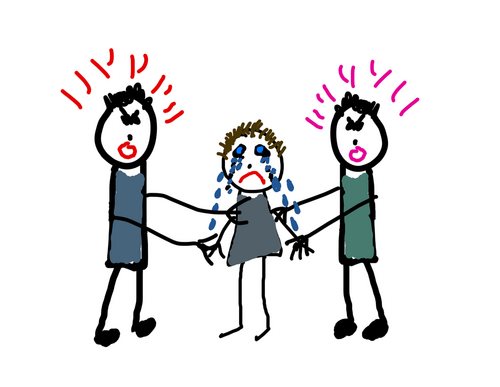The Stress of Laws and Foreign Children
The Stress of Laws and Foreign Children: A Guide
Adopting a child from a foreign country can be a long and complicated process. Aside from the legal requirements, there are also cultural and social differences that can contribute to the stress of adopting a foreign child. In this article, we provide a guide to understanding the legal requirements of adopting a foreign child and the potential challenges that adoptive parents may face.
Legal Requirements
When adopting a child from a foreign country, it is important to familiarize yourself with the legal requirements. In the United States, this process involves complying with both U.S. immigration laws and the laws of the foreign country. Each country has its own adoption laws, and it is essential to work with experienced and reputable adoption agencies or attorneys who are familiar with the requirements and procedures.
Some of the common legal requirements for adopting a foreign child include:

- Obtaining a home study from a licensed social worker
- Attending pre-adoption education or counseling sessions
- Meeting the requirements of the foreign country (e.g., interviews, background checks)
- Filing a petition for adoption with the U.S. Citizenship and Immigration Services
- Obtaining an immigrant visa for the child
Cultural and Social Differences
Aside from the legal requirements, adopting a child from a foreign country can also involve navigating cultural and social differences. These differences can affect how the adoptive child adjusts to their new environment, as well as how the adoptive parents interact with the child.
Some issues to consider include:
- Language barriers: Adoptive parents may need to learn the child's language to communicate effectively with them and help them adjust to their new environment.
- Cultural practices: Adoptive parents should be aware of cultural differences and be respectful of the child's culture to help them maintain their identity and connection to their birth country.
- Adjustment period: Adoptive children may go through an adjustment period upon arrival, which can involve feelings of homesickness, anxiety, or other emotional issues. Adoptive parents must be supportive and patient during this time.
📝 See Also
Potential Challenges
Adopting a child from a foreign country can also present several challenges that can be stressful for both the adoptive parents and the child. Some potential challenges include:
- Health issues: Adoptive children may have health issues that need to be addressed, such as malnutrition or a lack of medical care. The adoptive parents may need to factor in the cost of medical services and treatments.
- Legal issues: Adoptive parents may encounter legal issues with the immigration process, such as a lack of documentation or uncertainty regarding legal guardianship.
- Emotional issues: Adoptive children may have experienced trauma or abandonment prior to their adoption, leading to emotional issues that may need to be addressed.
Final Thoughts
Adopting a child from a foreign country involves navigating legal requirements, cultural and social differences, and potential challenges. It is important to work with experienced professionals to ensure that these challenges are addressed properly. Additionally, adoptive parents should be prepared to offer emotional support and create a welcoming and supportive environment for their new child.
In legal disputes, residual emotional damage to children who stand to be affected by rulings regarding their respective parents is not uncommon. Divorce proceedings are a notable instance of this, as children may be forced to choose between parents--a decision that may cast a shadow over their childhood and life well into adulthood. Immigration court, as well, stands to rupture families and create stress for foreign-born children of illegal immigration. In deportation cases, whole houses may be divided.
Perhaps not as significantly, but still traumatic in nature, children of illegal immigration can bear the burden of their parents who brought them to the country illegally in the court of public opinion. Illegal immigration may ultimately prove beneficial to the health, education and general well-being of the foreign-born child. Yet, it can lead to hardships unknown to those Americans with a lineage of several generations in this country. While this is not to say that all is hopeless for these children, it can be exponentially difficult.